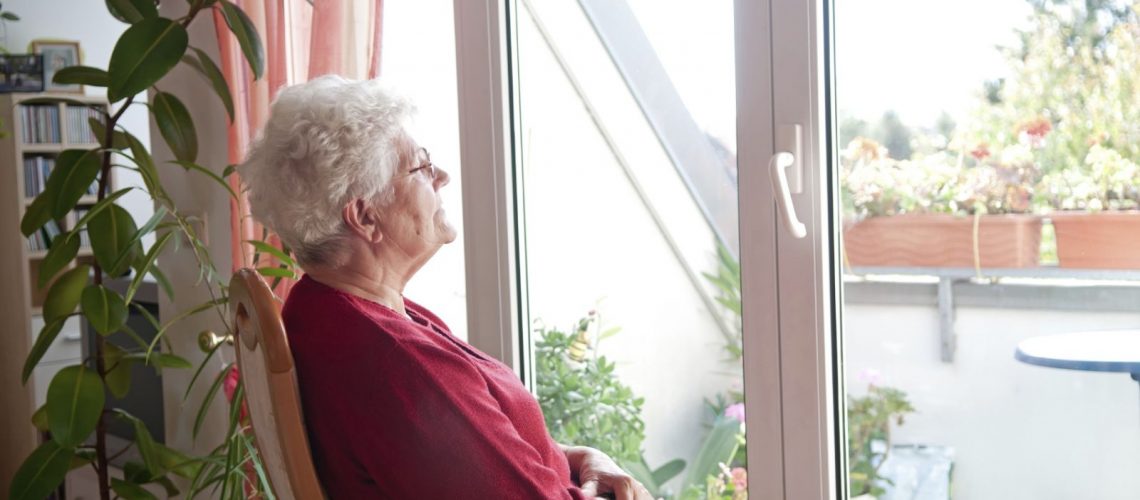This year has been hard on all of us, in many ways. Some are working less, others are working more, and the balancing working from home while protecting your loved one from a global pandemic is all….a lot. While isolation and caution is needed in caring for your loved ones that are at a higher risk of infection, their risk of boredom, loneliness, and depression has increased rapidly.
Before the pandemic, many seniors spent their days by socializing at shops or community centers, volunteering/working, and getting their own groceries. As we arrive at the 1 year mark, we realize that many members of this population who thrive on face-to-face interactions have had their main source of joy taken from them. Friends and family can’t visit as often, the masks make it harder to hear others, and watching the news brings anxiety. Being in isolation without a structured routine often can lead to loneliness and even depression. Some common signs of depression in seniors include:
-
Sadness, or feeling “empty”.
-
Unexplained or aggravated aches and pains.
-
Loss of interest in socializing or hobbies.
-
Weight loss or loss of appetite.
-
Feelings of hopelessness or helplessness.
-
Lack of motivation and energy.
-
Difficulty falling asleep or staying asleep, oversleeping, or daytime sleepiness.
-
Loss of self-worth (worries about being a burden, feelings of worthlessness or self-loathing).
-
Sudden change in memory or motor skills
-
Neglecting personal care (skipping meals, forgetting meds, neglecting personal hygiene).
(Source: HelpGuide.org Lawrence Robinson, Melinda Smith, M.A. and Jeanne Segal, Ph.D.)
A common misconception of aging is that depression is a natural part of it. It’s not. Depression can be brought on by many things– including isolation– but just because this is more common today doesn’t mean it should be ignored.
So, what can you do to help?
-
Bring a fun but easy puzzle, with bright contrasting colors. Just make sure it has an image they would enjoy looking at, or reminds them of something they love (a garden, farm house, ice cream cones, etc.)
-
Sit with them during meals. If you can stay 6 feet apart, eat a meal together. Take time to chat about their day, exciting things coming up, and tell them about funny memories you have with them. “Earlier today I thought about that one time when I was 8, you….”
-
Think about what they’re used to doing on a daily basis, and what they’ve spent most of their life doing. Were they once an office manager? A professor? Stay at home mom? To help them feel productive, give them small tasks that they know well. For office managers, maybe it’s signing a piece of paper at the end of each day to make the completed tasks “official”. For professors, ask them to teach you about their subject of expertise. For stay-at-home parents, ask them to fold towels, untie knots on a piece of string, or wash fruits and vegetables.
-
Regardless of what task they choose, make sure it doesn’t have to be perfectly done. Allow them to do as much as they possibly can by themselves, no matter how fast or slow they are going.
-
Print some photos of them with people that bring them joy, and help them make a photo album. Talk about the stories behind the pictures, bring stickers to use as decoration, allow them to design pages and make it their own. Put it in a place where they can notice it and reminisce.
-
Reach out to your loved one’s friends and ask them to write a few words on a happy memory to share with your loved one, and how much that means to them. Make them into a book or include them in a photo album. Hearing and reading positive affirmations will help remind them of how widespread their impact has been on others.
-
Ask them for help with small tasks or activities around the house, and make them feel needed. “Oh gosh, I’m not sure I can peel all these potatoes alone, can you help me?” “Wow, this puzzle is harder than I thought. Will you be my puzzle partner? I think you have a better eye for this.” Give off the impression that it’s important to get done, that they’re needed, and you can’t do it yourself (even if you can).
-
Bring your ukulele, harmonica, or a way to play their favorite songs or albums. Encourage them to dance or sing with you.
-
Even when most public places are closed or too risky, you can still invite them out for a car ride to a scenic place.
-
Don’t tell them to “Just be happy!” or “Why are you sad? You have a great life!” This does not solve anything and may make them feel more guilty about feeling depressed. They may not even be able to articulate how they’re feeling. If anything, sympathize with them. “It must be really hard to be away from everyone for so long. I want you to know I’m here for you.” Don’t expect their negative feelings to go away after one good day. These emotions are like a wave. They will come and go. Let it happen, but be mindful of the difference between supporting and enabling.
Our caregivers often strive to engage our clients in activities that bring them joy and a sense of fulfillment. Even when our purpose is to help establish routines and with personal care in a client’s home, we commonly find ourselves providing companionship as well. We ask about their life, accompany them on walks, and aren’t afraid to be silly in order to make them laugh. For many, especially now, it’s nice to have a new friend.

